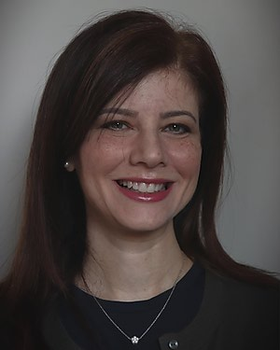Beta-Ketothiolase Deficiency Overview
Learn About Beta-Ketothiolase Deficiency
Beta-ketothiolase deficiency is an inherited disorder in which the body cannot effectively process a protein building block (amino acid) called isoleucine. This disorder also impairs the body's ability to process ketones, which are molecules produced during the breakdown of fats.
Mutations in the ACAT1 gene cause beta-ketothiolase deficiency. This gene provides instructions for making an enzyme that is found in the energy-producing centers within cells (mitochondria). This enzyme plays an essential role in breaking down proteins and fats from the diet. Specifically, the ACAT1 enzyme helps process isoleucine, which is a building block of many proteins, and ketones, which are produced during the breakdown of fats.
Beta-ketothiolase deficiency appears to be very rare. Fewer than 250 affected individuals have been reported in the medical literature.
This condition is inherited in an autosomal recessive pattern, which means both copies of the gene in each cell have mutations. The parents of an individual with an autosomal recessive condition each carry one copy of the mutated gene, but they typically do not show signs and symptoms of the condition.
Shailesh R Satpute, MD, PhD
Shailesh Satpute is a Hematologist Oncology specialist and a Hematologist in Memphis, Tennessee. Dr. Satpute is rated as a Distinguished provider by MediFind in the treatment of Beta-Ketothiolase Deficiency. His top areas of expertise are Beta-Ketothiolase Deficiency, Iron Deficiency Anemia, Lung Cancer, Childhood Iron Deficiency Anemia, and Bone Marrow Aspiration.
Raymond Wang is a Medical Genetics provider in Orange, California. Dr. Wang is rated as an Advanced provider by MediFind in the treatment of Beta-Ketothiolase Deficiency. His top areas of expertise are Mucopolysaccharidoses (MPS), Mucopolysaccharidosis Type 7 (MPS VII, Sly Syndrome), Mucopolysaccharidosis Type 1 (MPS I, Hurler Syndrome), Pompe Disease, and Adenoidectomy.
Rubenstein Child Health Building
Dr. Hilary Vernon is a Professor of Genetic Medicine and pediatrics at the Johns Hopkins University School of Medicine. She is also an attending physician at Kennedy Krieger Institute. Hilary Vernon has expertise in treating inborn errors of metabolism and mitochondrial disorders. She is the director of the Mitochondrial Care Center at The Johns Hopkins Hospital and the Barth Syndrome Interdisciplinary Clinic at the Kennedy Krieger Institute. Her research interests include understanding intermediary metabolism in Barth syndrome and in disorders of branch chain amino acid metabolism. Dr. Vernon also co-directs the Department of Genetic Medicine Clinical Trials Unit, and is the principal investigator on multiple clinical trials for rare diseases. Dr. Vernon received her medical degree and doctorate from Rutgers University, New Brunswick, New Jersey. She completed residencies in genetics and pediatrics at The Johns Hopkins University, and a fellowship in clinical laboratory biochemical genetics at The Johns Hopkins University. Dr. Vernon was recognized with the 2010 Francis F. Schwentker Award for Excellence in Research at Johns Hopkins University and the 2011 James B. Sidbury Jr. Fellowship in Biochemical Genetics at Johns Hopkins University. Dr. Vernon is rated as an Advanced provider by MediFind in the treatment of Beta-Ketothiolase Deficiency. Her top areas of expertise are Methylmalonic Acidemia, Propionic Acidemia, Infantile Neutropenia, Progressive External Ophthalmoplegia, and Gastrostomy.
Published Date: June 01, 2020
Published By: National Institutes of Health

